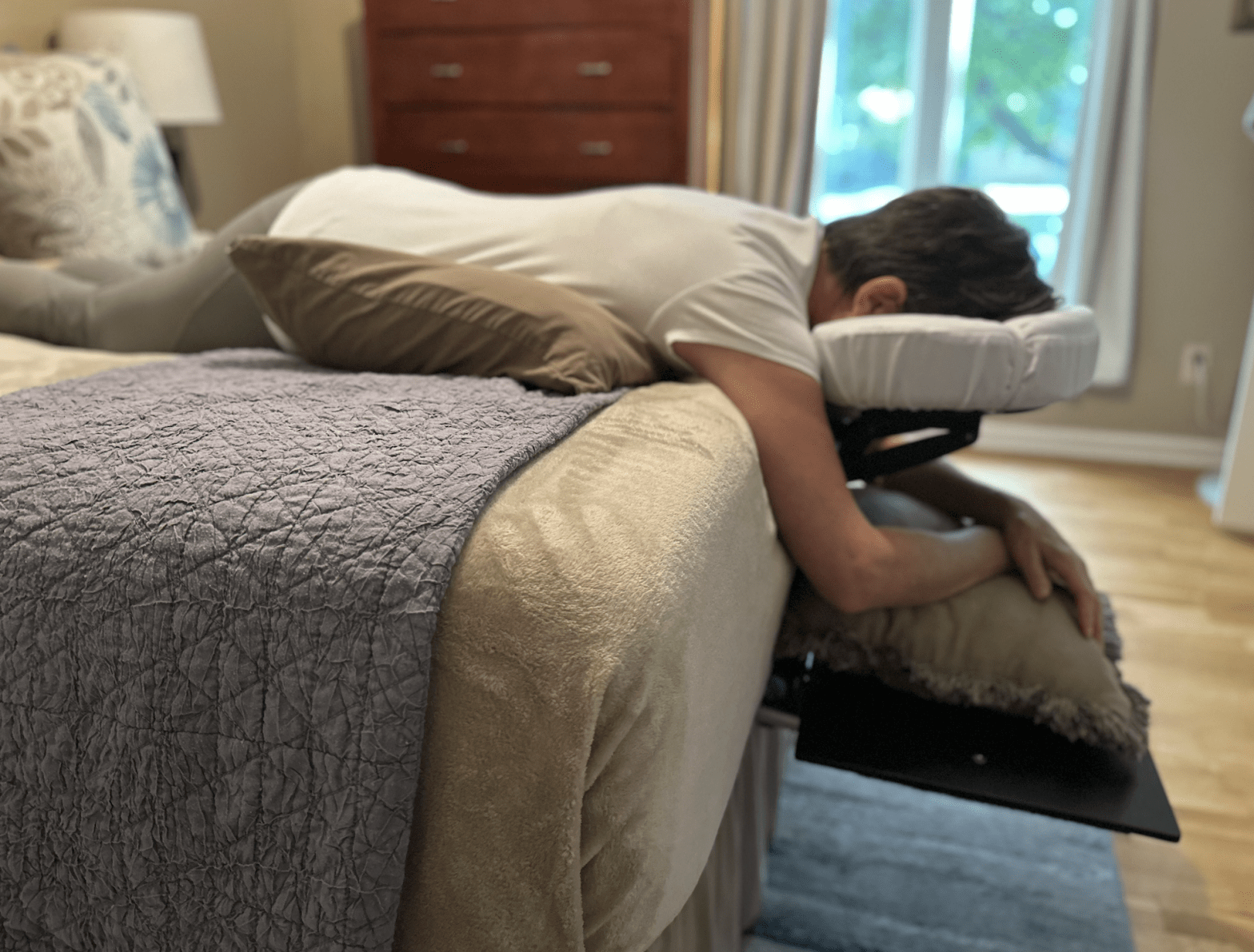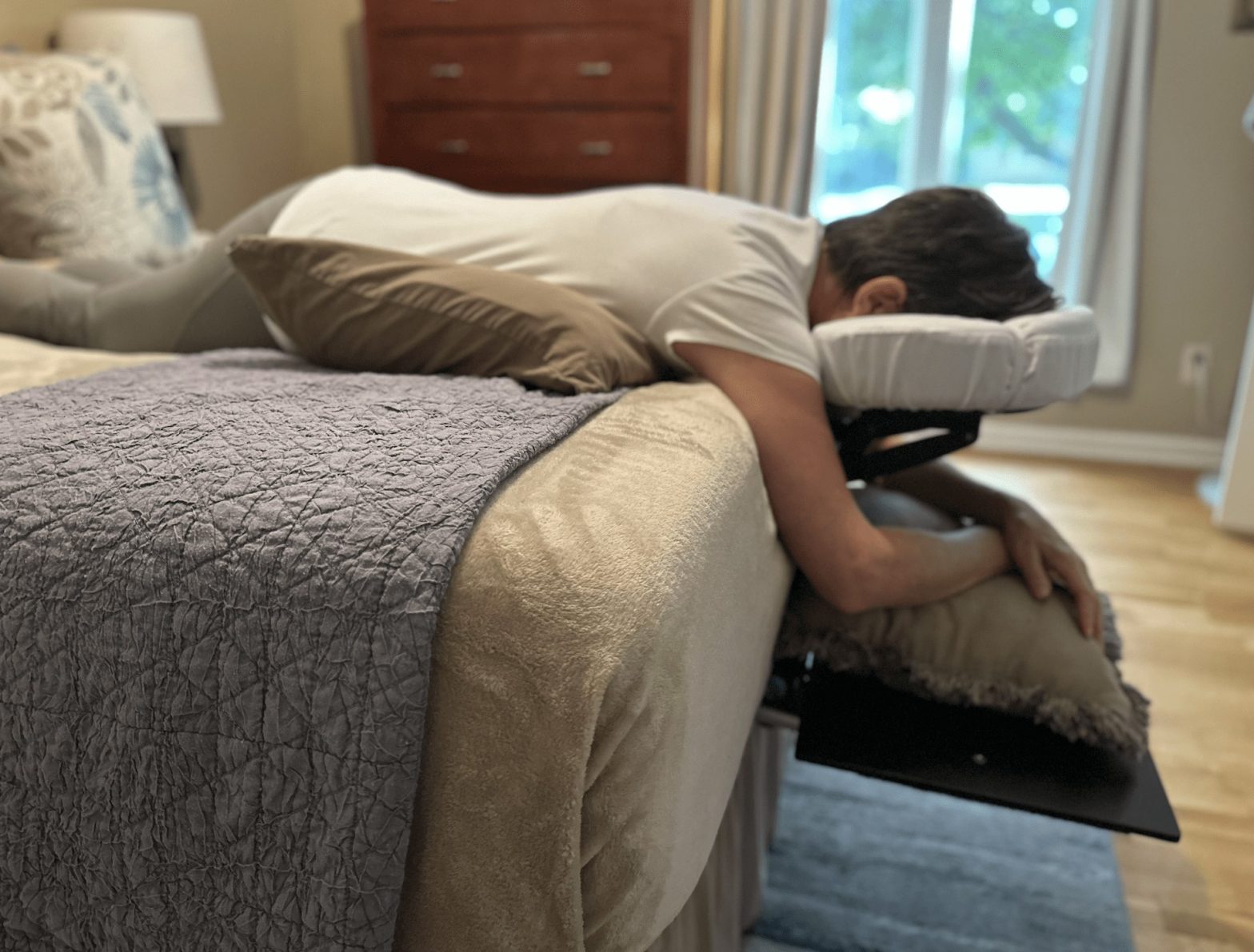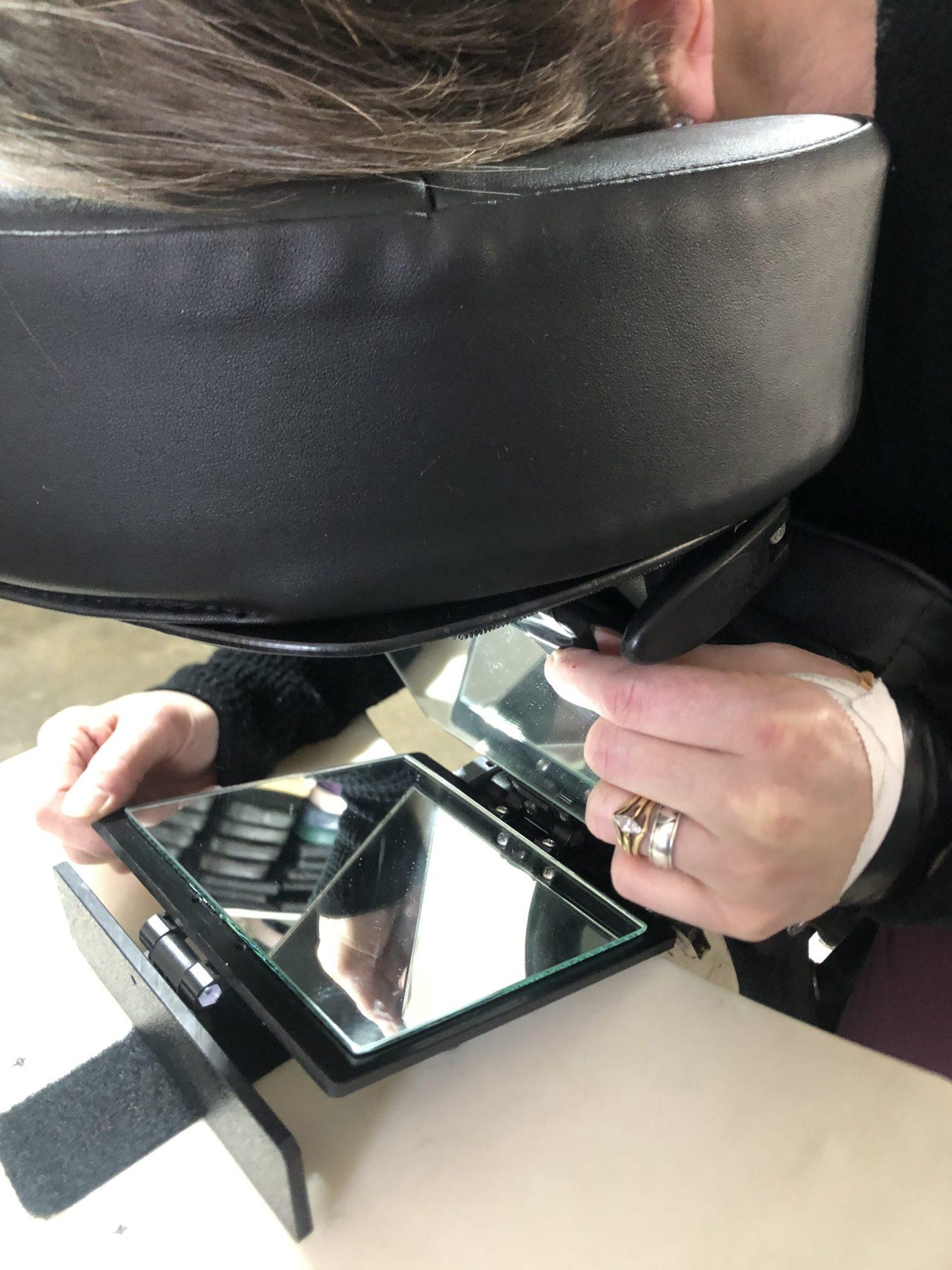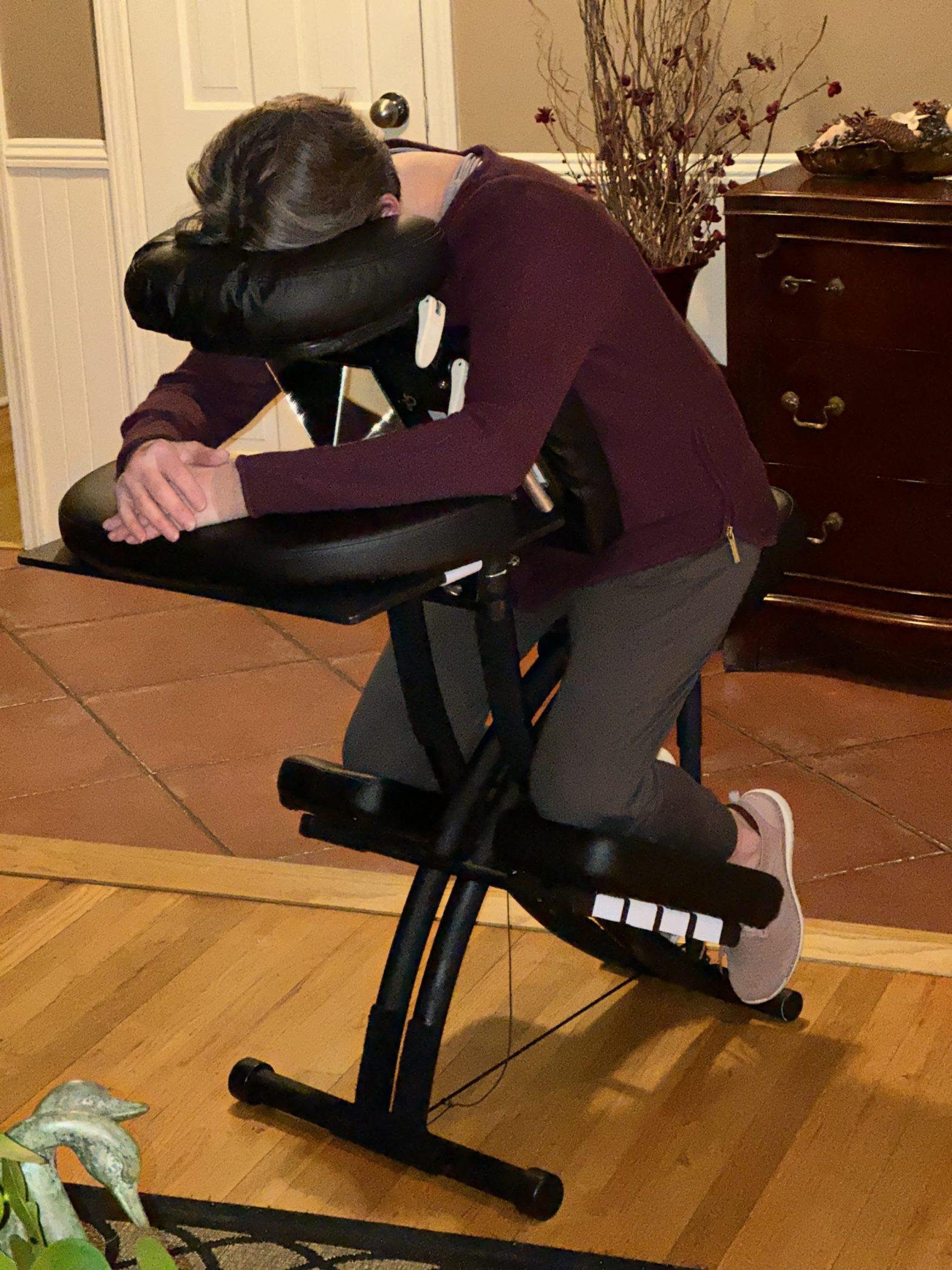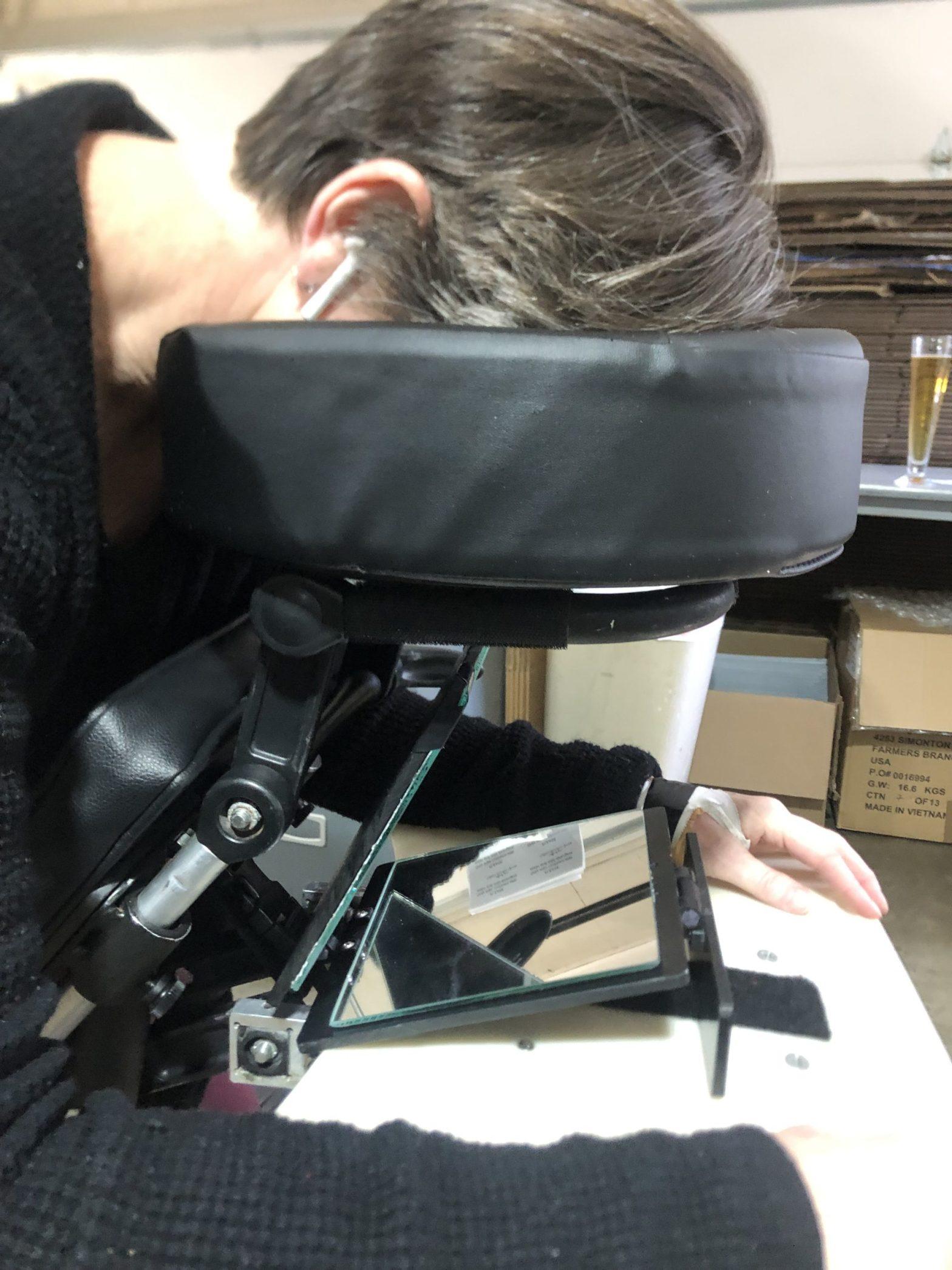If you are reading this, you have just had a vitrectomy operation or are getting ready to go in for one; your doctor may have advised you to stay in a face-down position for a set time during your recovery. It may feel uncomfortable or even confusing at first, but it’s one of the most important parts of healing from certain types of eye surgery, especially surgery involving placing a gas bubble.
Scouter Medical specializes in providing Face Down Support at Bed and Three-pad faceplates to help patients recover safely and comfortably. The current guide will go into detail about how long after a vitrectomy you are going to be required to sleep face-down, why it matters, and how the right equipment for your situation can benefit you through all of it.
What Is Vitrectomy and Why Is Face-Down Positioning Important?
Vitrectomy is the surgical removal of the vitreous humor, that is, the clear gel-like substance inside the eye. The procedure is usually performed in the case of:
- Retinal detachment.
- Macular holes.
- Diabetic retinopathy.
- Eye infections or injuries.
In many instances, to hold the retina in its place while it heals, surgeons inject a gas bubble into the eye. This gas bubble needs to float upward and press against the correct part of your retina. Because of this, patients are often instructed to stay in a face-down position, allowing gravity to assist the appropriately placing of the gas bubble.
How Long Do You Have to Sleep Face Down?
Typical Duration: 5 to 14 Days
Most patients are requested to remain face down for 5 to 14 days depending on the severity of the retinal problem and the size of the gas bubble. In some cases, the doctor may recommend that an additional week or even two weeks be added to those recommended times with a maximum of 21 days.
This is not only sleep—maintaining the face-down position is recommended for most hours of the day, usually between 16-20 hours a day, including sitting, standing, relaxing, and of course, sleeping.
Why the Duration Varies:
- Type of retina repair: Macular hole surgeries may require longer face-down positioning.
- Type of gas used: Some gases stay in the eye longer than others.
- Healing response: Individual healing speed can impact recovery recommendations.
Always follow your surgeon’s specific instructions—they are tailored to your condition.
Why Sleeping Face Down Is So Important
When you’re asleep, you’re generally lying still for hours. Therefore, gas bubbles can exert steady pressure onto the retina for an hour, which promotes healing and reduces the risk of complications such as:
- Re-detachment
- Incomplete sealing of a macular hole
- Bubble migration (which can lead to vision problems or surgical failure)
Not maintaining proper positioning during this time will delay recovery or, in the worst-case scenario, result in a second surgery.
How Do You Sleep Face Down Comfortably?
Sleeping and keeping face down for long hours is not easy; that is why Scouter Medical offers specialized equipment.
1. Face Down Support at Bed
These pads offer cushioned support that lets a person sleep on the stomach while aligning the neck and spine. It minimizes the pressure on one’s face and maintains an open airway, enabling unimpeded breathing while in the specified position.
Advantages:
- Accurate height and angle adjustment.
- Soft, breathable cushions.
- Reduction of shoulder and neck strain.
- Long sleep in a proper position.
2. The Three-Pad Faceplate System
This system provides optimal face support using three pads positioned to minimize pressure on the face. You can stay face down sitting, sleeping, or resting without discomfort.
Features:
- Distributes weight evenly across the forehead and cheekbones.
- Eye or nose compression is prevented.
- Compatible with a massage table or bed frame.
- Easy to sanitize and adjust.
Tips for Maintaining the Face-Down Position
Beyond using the professional support systems, here are some practical tips:
- Set reminders to change positions every hour while awake.
- Utilize mirrors or periscopes to see around the room without turning your head.
- Do not hesitate to ask for assistance—certain things like eating, dressing, and moving will require help.
Stay mentally prepared—read books, listen to audiobooks, or do other things compatible with face-down placement to keep yourself entertained.
Renting vs. Buying Equipment
Face-down recovery equipment is not something that most individuals will require permanently. That is why Scouter Medical rents out medical equipment for affordable rates, including our most popular models of Face Down Support at Bed and Three-pad faceplate systems.
Why Rent?
- Lower initial cost.
- Rent for flexible periods (1 week to 3 weeks+).
- Equipment which is clean, sanitized, and ready to use.
- Equipment setup and instruction by professionals (in select locations).
Is It Safe to Stop Face Down Positioning Early?
Never stop a face-down position without your surgeon’s agreement. Aborting the position prematurely even though you “felt fine” may risk surgical failure or long-term damage to your vision. Most complications arise when patients do not consider this positioning serious for successful healing.
Takeaway Thoughts
Sleeping face down after vitrectomy may seem like a huge obstacle, yet it remains one of the most critical elements in your recovery. With proper dispositioning and equipment Face Down Support at Bed and Three-pad faceplate system), your comfort can be maximized, facilitating healing.
At Scouter Medical, we remain with you at every step. Renting equipment makes postoperative awareness a safer venture.
Ready to start your recovery?
Reach out to Scouter Medical now for tailored suggestions regarding the face-down recovery equipment.



